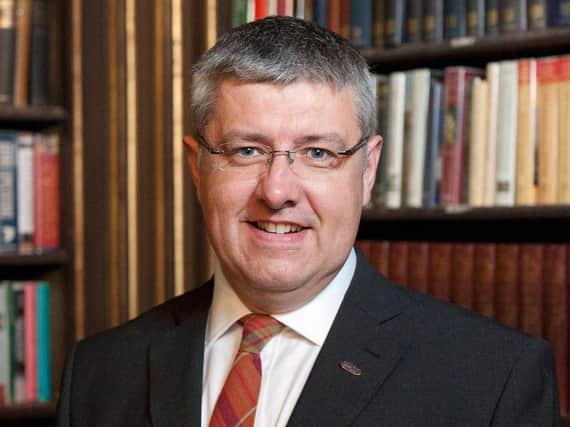Grenfell tragedy must help us to learn and improve - Andrew Brown


Unusually the inquiry has not followed a chronological order – starting with the construction of the tower, going on to the building regulations and the associated materials which added fuel to the fatal fire.
Much has been centred around whether London Fire Brigade should have departed from established procedure for tower block fires earlier, when it was clear “stay put” was no longer the right advice.
Advertisement
Hide AdAdvertisement
Hide AdWe must now think beyond the right or wrong of that one operational decision if we’re to prevent more people dying or being badly injured in future major incidents attended by “blue light” services.
The emergency services are there to respond to (often complex) challenges which impact on human life and, at an operational level, run towards danger when others run in the opposite direction – driven by their moral and legal duty to save life.
While we can’t predict every emergency situation, we can anticipate most and adequately train for such eventualities to ensure the service has the capability and capacity to respond effectively.
Learning from history
Grenfell is not the first incident where this has happened, so it’s disappointing we fail to learn from history. Similar traits were exposed by the Lindt Cafe Siege Inquiry in Australia and others where adherence to the wrong strategy resulted in deaths.
Making these command decisions, at the time, under pressure is some of the most challenging decision-making anyone can be asked to make. Strategies must be critically reviewed to see if they are effective in making progress in the overall objective of saving life. Tactical advice must be sound, based on evidence but, importantly, based on our duty of care to save life, even in the most challenging of circumstances.
We need to look at best practice globally, adapt to the UK scenario and continue to collaboratively train across the emergency services to cross-fertilise knowledge and expertise.
Budget cuts to our emergency services no doubt impact on training as it’s often seen as a soft target in austerity measures. But “easy” cuts can cost lives.
Communication is also key during and after incidents – often the messages from senior officers lack empathy towards those who’ve perished in incidents.
Advertisement
Hide AdAdvertisement
Hide AdOrganisational culture affects how we respond when we’re scrutinised. Leaders in public services have to be more open to acknowledging organisational shortcomings if they are retain public trust and confidence.
- Andrew B. Brown is an international advanced negotiation and crisis leadership skills consultant and a director of the Emergency Planning Society